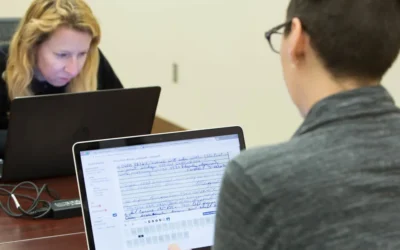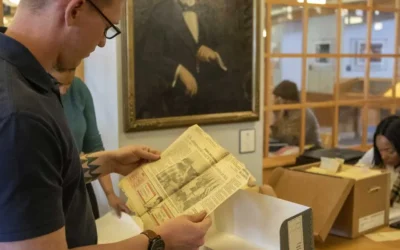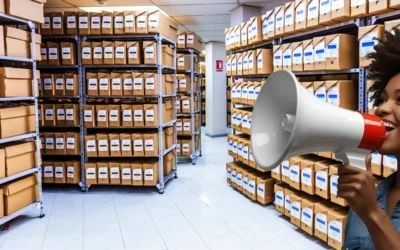Considerations Used to Appraise Archival Records
Margot Note
What is the value of the information contained in archival materials? To determine this, archivists concentrate on the circumstances of creation.
The focus is on identifying the role and significance of the records creator and the position that the records creator held within the organization. The records of a high-level person in an unimportant function may be less critical than lower-level records documenting a vital function. Archivists consider the creator’s position in the organization, the unit activities, and the record function.
Content
Archivists also analyze content. Archivists need to know not only to whom and to what function these records relate, but also how well they cover the relevant period, whether the records are of quality, the extent of the information, and whether there are any mitigating factors that limit that content’s value. Archivists consider the practical limitations of the records, like legibility and understandability, and topical analysis, such as time span, level of detail, creator’s relationship to the topic, and the character and quality of the information.
Archivists ask the following questions:
- What is the records’ provenance?
- What do they document?
- Is there a relationship between the records and the collections already within the repository?
- Do the records duplicate collections already in the repository? Or elsewhere?
- Do the records fit the repository’s mission and collection policy?
- Do the records fit into the archives’ documentation strategy?
Use
Archivists also consider the use of the records. Archives must always consider the repository’s user base and how this group of records does or does not fit. By audience, archivists mean primary and secondary users, and prospective as well as current users. They consider the user interest such as clientele and research trends methodologies, as well as access restrictions.
Archivists may ask:
- What legal guidelines or restrictions apply to the records?
- How do retention schedules apply to the records?
- What restrictions apply to the records?
- What is the anticipated use of the records?
Costs
The costs of retention are considered as well. There are costs—and not insignificant costs—attached to accepting materials. Archivists often do not think about anything beyond space. Regarding storage, not all space is the same; some materials require oversize shelves or map drawers or different environmental conditions.
How much will it cost to process the materials? Frequently archives assign processing tasks to interns, students, or paraprofessionals, but that is not always a practical approach for certain kinds of materials. (Plus, in my opinion, having non-archivists regularly perform processing devalues the profession and the incredible amount of intellectual labor involved in our work). Some types of records require subject expertise and not just archival knowledge. Other files take the standard folders and boxes while different types of material require additional equipment or materials. Of course, some materials arrive in better order than other files and require less work. Archivists, therefore, think about the level of expertise needed, the cost of supplies, and the quantity of work.
Conservation may be required for a collection. Some materials arrive in good condition and need little more than re-foldering and boxing. Other materials are fragile and cannot be handled without additional preservation work, which is costly in time and materials.
Another factor is reference services. In some respects, the level of work entailed in providing reference depends on how well the collection has been arranged and described. But sometimes, the nature of the material relative to the way researchers need to access it makes the process very labor-intensive.
A Balancing Act
The implication of the appraisal process is where reality comes into play. Archivists can account for all aspects of the value of the information, and they balance that against the cost of arranging, describing, preserving, and making accessible records of enduring value.
Margot Note
Margot Note, archivist, consultant, and Lucidea Press author is a regular blogger and popular webinar presenter for Lucidea, provider of ArchivEra, archival collections management software for today’s challenges and tomorrow’s opportunities. Read more of Margot’s posts here.
Similar Posts
Collaborative Archival Relationships
Collaborative projects are instrumental in showcasing how archival collections can benefit various organizational departments.
Informational, Evidential, and Intrinsic Values within Archives
Archives provide authentic, reliable information and hold values that reflect their functions and uses; informational, evidential, and intrinsic.
A Sustainable Archives
Archivists prioritize sustainable practices and policies, rooting their work in ethics of care, often preferring digital processing and preservation
Archival Branding and PR Strategies
Archivists who adopt branding and PR strategies both safeguard historical treasures and contribute to their organizations’ evolution.




Leave a Comment
Comments are reviewed and must adhere to our comments policy.
0 Comments